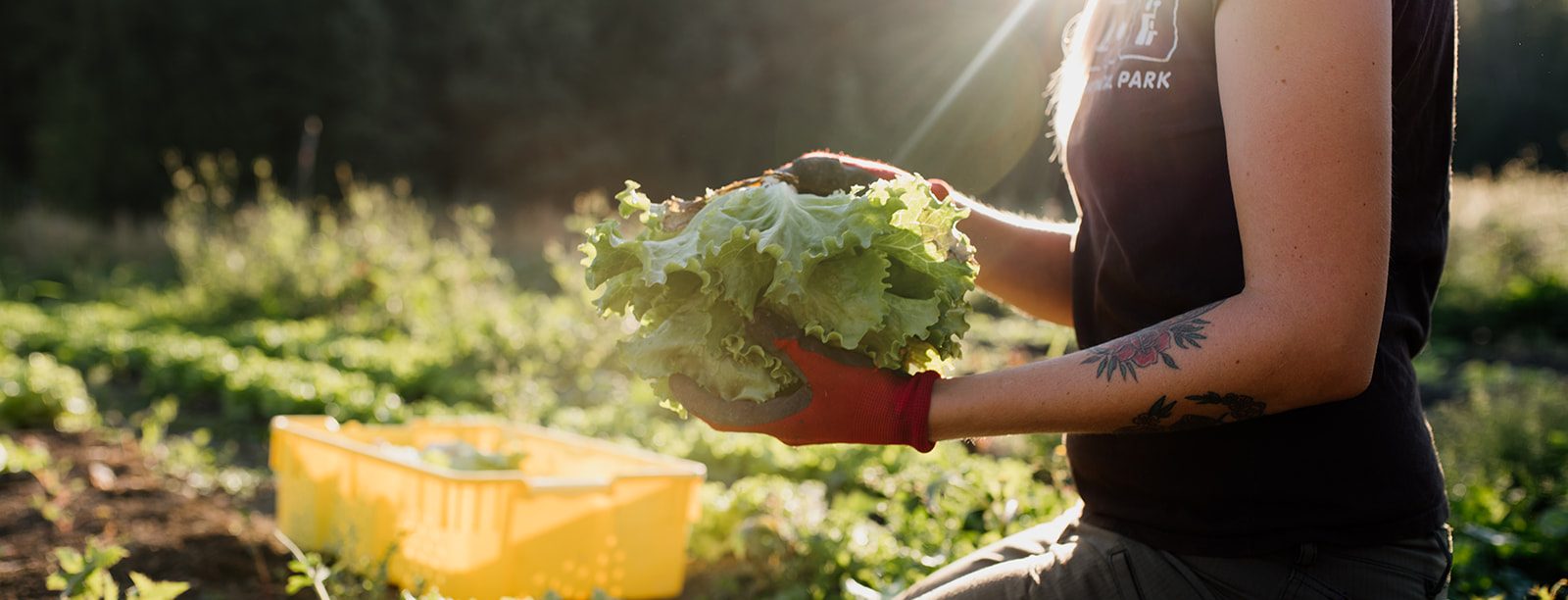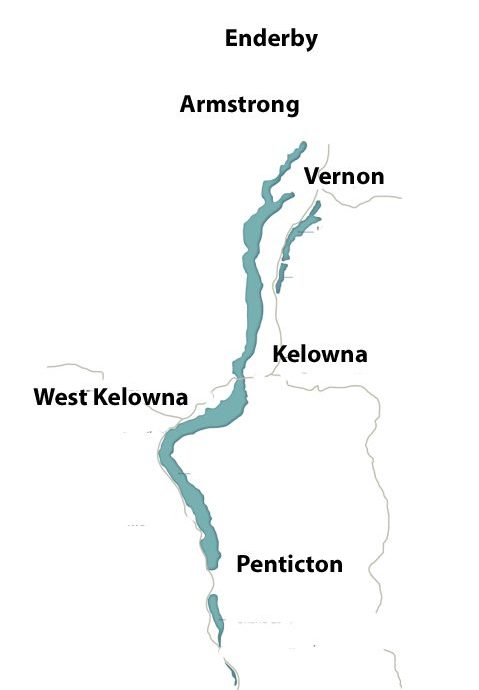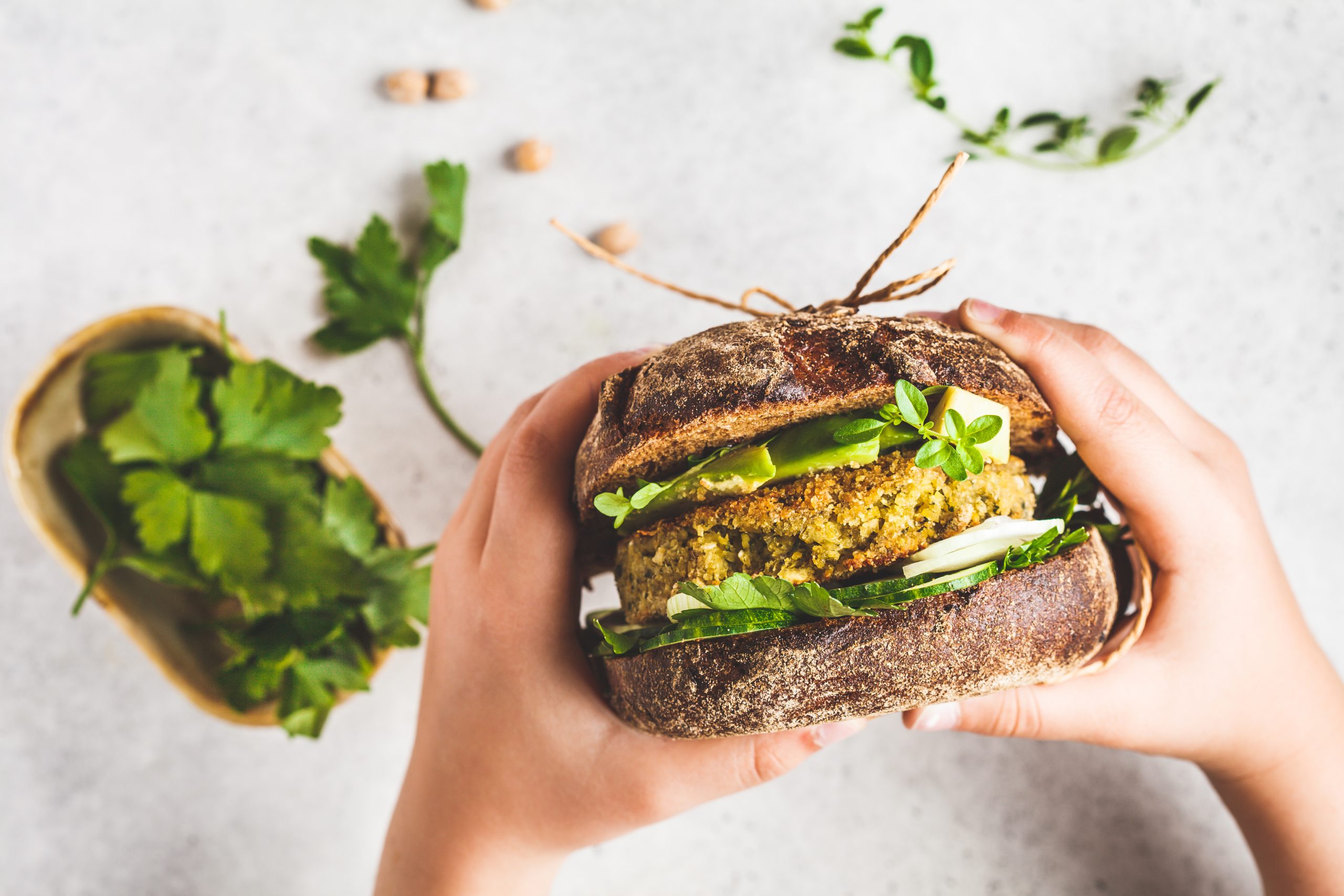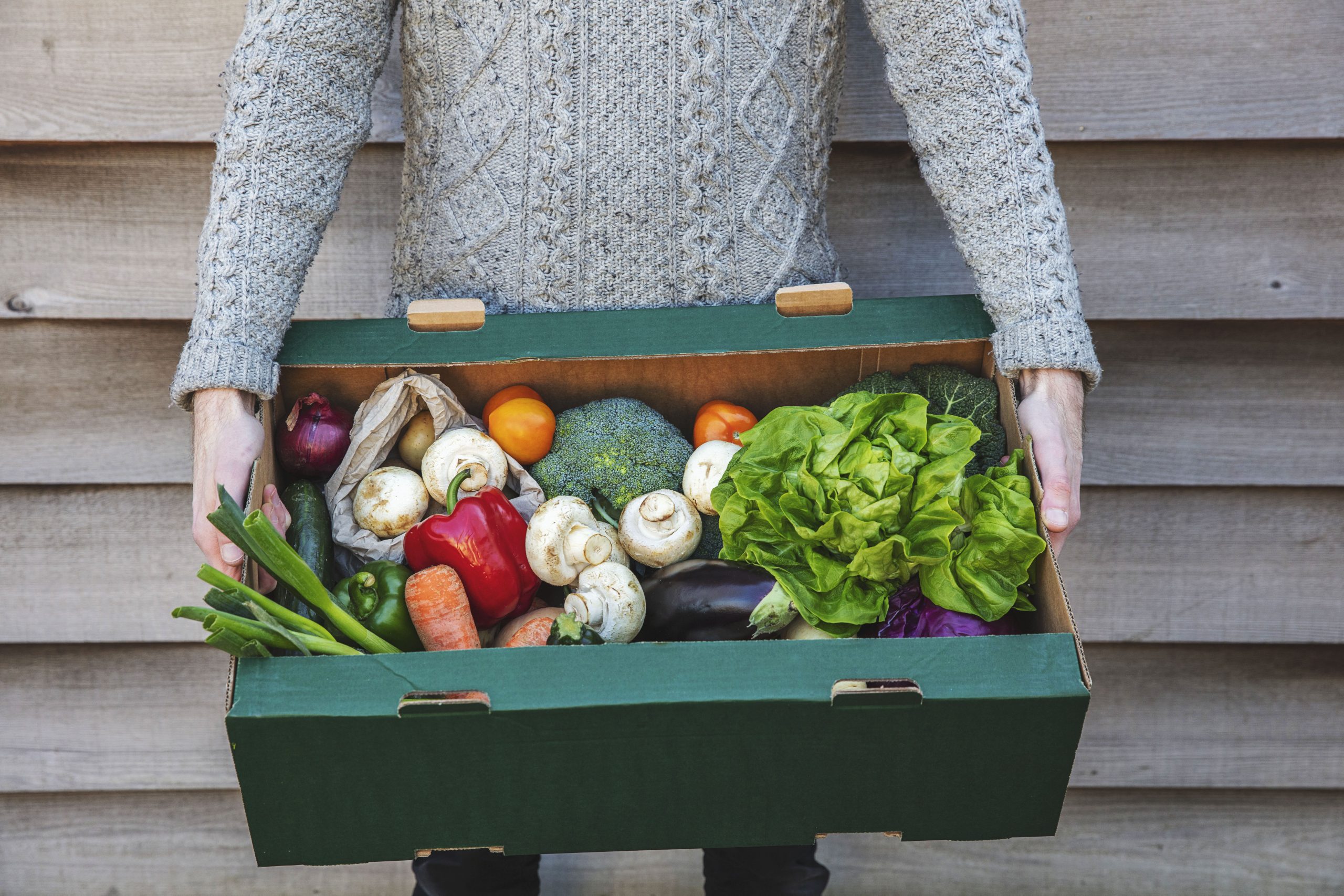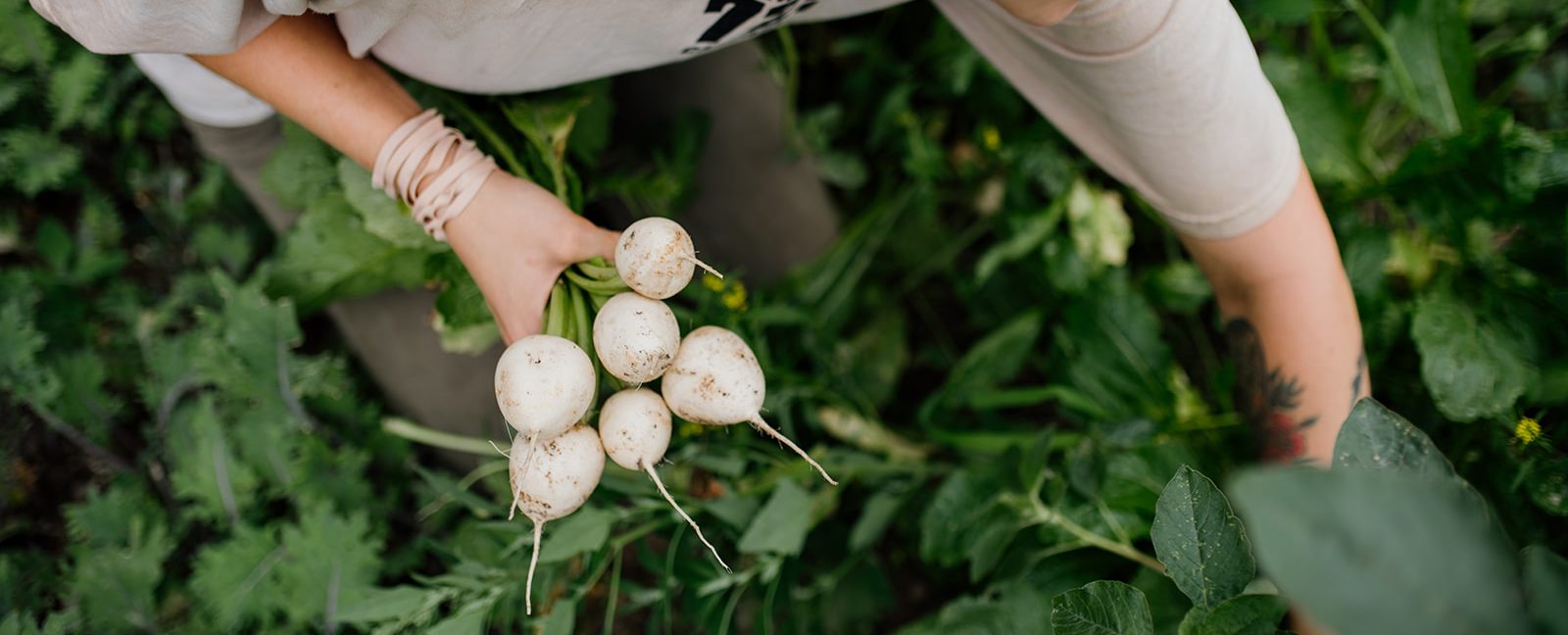
Local Food at UBCO
Small-scale farmers play an important role in our community. They often support the sustainability of local economies, protect and enhance natural resources, and supply community members with fresh, nutritious food.
When we buy locally-grown, seasonal food, it helps our economy, the environment and our health. It also brings the community together!
Did you know that small-scale farming is the most common form of farming in the North Okanagan?
These farms tend to have more diversified and resilient farming practices and products, and often practice greater environmental stewardship.

The North Okanagan has the highest number of certified organic farms in all of British Columbia!

Small-scale farmers are up against transnational corporations that control most aspects of food production, procession and distribution, in which industrialized agricultural systems offer cheaper and more convenient imported foods.

In short: It’s hard for our local small-scale farmers to compete with the global food system.
Okanagan farmers need an institutional champion to incentivize and support the building of a local food value chain that supplies food from local farms to institutions with stable purchasing power.
This is why UBCO Food Services has stepped forward to partner with Land to Table (L2T) as part of a pilot project initialized in 2021. This project is now up and running and bringing locally-procured food to our campus community!
Choosing to purchase locally-grown food is an important way for us to support our local economy, protect the environment, and contribute to community health and well-being – all in support of UBCO’s Food Vision and Values!
Meet UBCO's Local Producers
Curlew Orchard
Photos: Curlew Orchard Facebook

Named after the endangered Long-Billed Curlew that once roamed the hillsides around Vernon, Curlew Orchard is a certified organic farm dedicated to growing delicious fruit in balance with nature. Six acres of the property are planted with apple trees growing primarily Gala, along with Ambrosia, Macintosh, Spartan and Granny Smith. Another acre is devoted to permaculture, with a mix of fruit trees, berries, herbs, vegetables and diverse companion plants.
Shuswap Organics
Photos: Maylies Lang
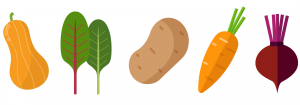
Owen and Emily are the brains behind Shuswap Organics. They work together to bring you a delicious line of local preserves, and fresh organic vegetables. You’ll find Emily experimenting in the kitchen and farming in the fields, and Owen taste-testing new recipes and selling food products at farmers markets and stores. They moved to the North Okanagan from Vancouver to farm, and along the way started making jams and pickles to preserve the seasons’ bounty. They are proud of what they produce, and hope you can taste their care for quality in every bite.
Home-Grown Ingredients
Where Your Food Comes From
Land to Table Partnership
Land to Table (L2T) is a network of community partners – including UBCO and local farmers – working to build a thriving, healthy and resilient local food system throughout the Okanagan Valley.
The idea is to build relationships along the food value chain – from farmers to processors, distributors, chefs, food waste managers and even the UBCO campus community – to overcome
challenges to local food procurement, and:

Promote access to fresh food, stewardship of the environment, equity in the form of livable wage for farm workers, and decent livelihood for farmers.

Develop an innovative model for institutional local food procurement on the strengths of these relationships.

Tell the story of why local food matters, and the values that are embedded in the local food that UBCO is purchasing.
Here are just some of the amazing reasons why UBCO supports local food procurement:

BUILDING REGIONAL PARTNERSHIPS
Building partnerships in turn helps to build a more resilient food system.
These partnerships help build a thriving, healthy and resilient food system that nourishes people, sustains equitable livelihoods, regenerates the environment, and celebrates the culture of the region.
When people and organizations come together with common goals, they can share ideas, knowledge and energy to co-create solutions that are mutually beneficial for not only those in the partnership, but the community as a whole.

SAFETY & ACCOUNTABILITY
The consumer-farmer relationship means more accountability to use farming practices that promote food safety, environmental sustainability and social justice.
Food safety refers to a food’s level of contamination risk. The more steps between you and your food supply, the greater the risk of food contamination. Buying local reduces the risk of eating unsafe food.
When food is raised and grown locally, the consumer better understands how and where their food is being produced. This awareness encourages local farmers to use sustainable agriculture practices that are more sustainable: for example, but not using pesticides and conserving soil and water, as well as more just: for example, by promoting fair treatment of agricultural farm workers.
SUPPORTING LOCAL ECONOMY
Procuring locally-grown food means money spent on those goods stays in the community, and helps local growers and farms prosper.
Because local farmers don’t have the same transportation and distribution costs as large agricultural businesses, they can retain more of the profits from their sales.
The multiplier effect is the amount of local economic activity that is triggered when a local farmer sells a food item. They will likely spend the money earned in their community – and the more a dollar circulates in a defined region, the more income, wealth and jobs it creates.

ENVIRONMENTAL IMPACT
Small-scale local farmers are more likely to practice sustainable agriculture (like the certified-organic farms partnering with UBCO). The more we keep such farms in production, the better we look after the environment in our region.
Certified organic growers use natural pest repellents to preserve the health of the food they distribute. They also promote habitats that give wildlife a place to live and thrive.
Eating local protects farmland, saving it from industrial use or other forms of development and maintaining the options of food security or ecological restoration.
This helps alleviate our dependence on fossil fuels by cutting back on greenhouse gas emissions caused by moving food long distances, and lessens the need for preservatives to keep food fresh during transportation.

FOOD QUALITY
Eating locally-grown food can help deliver a high-nutrient content, as it is often grown with the use of fewer chemicals, and is harvested at peak freshness. And when you eat food that is grown within its natural season, it tastes better.
When you eat local, sustainably-grown (and fresh?) food that is harvested within its natural season, it tastes better. Local farmers feature a wider range of food flavours, such as diverse heirloom tomato or apple varieties, enhancing the pleasures of a meal.
Fresh, locally grown food is more likely to consist of healthy unprocessed proteins, fruits, vegetables and whole grains, as opposed to choosing ultra-processed or packaged foods.

UBC'S CLIMATE ACTION PLAN
Procuring locally-grown and harvested food supports UBC's Climate Action Plan.
UBC Okanagan’s first Climate Action Plan 2030 (CAP 2030) was launched in the spring of 2022. It will identify new ways to reduce emissions in areas that university community members have influence over, including how we travel to campus, our food choices, the amount of waste we produce, and how much business air travel we do. More info
Although the most important way to choose a climate-friendly diet is to cut down or eliminate meat and dairy products, another significant way is to reduce food that is out of season (unless frozen or otherwise preserved) – particularly if grown in hothouses, or that comes from far away such as by air transport. More info
Know Your Climate Vocabulary
Value Chain
GHGS
Carbon footprint
Climate-friendly foods
